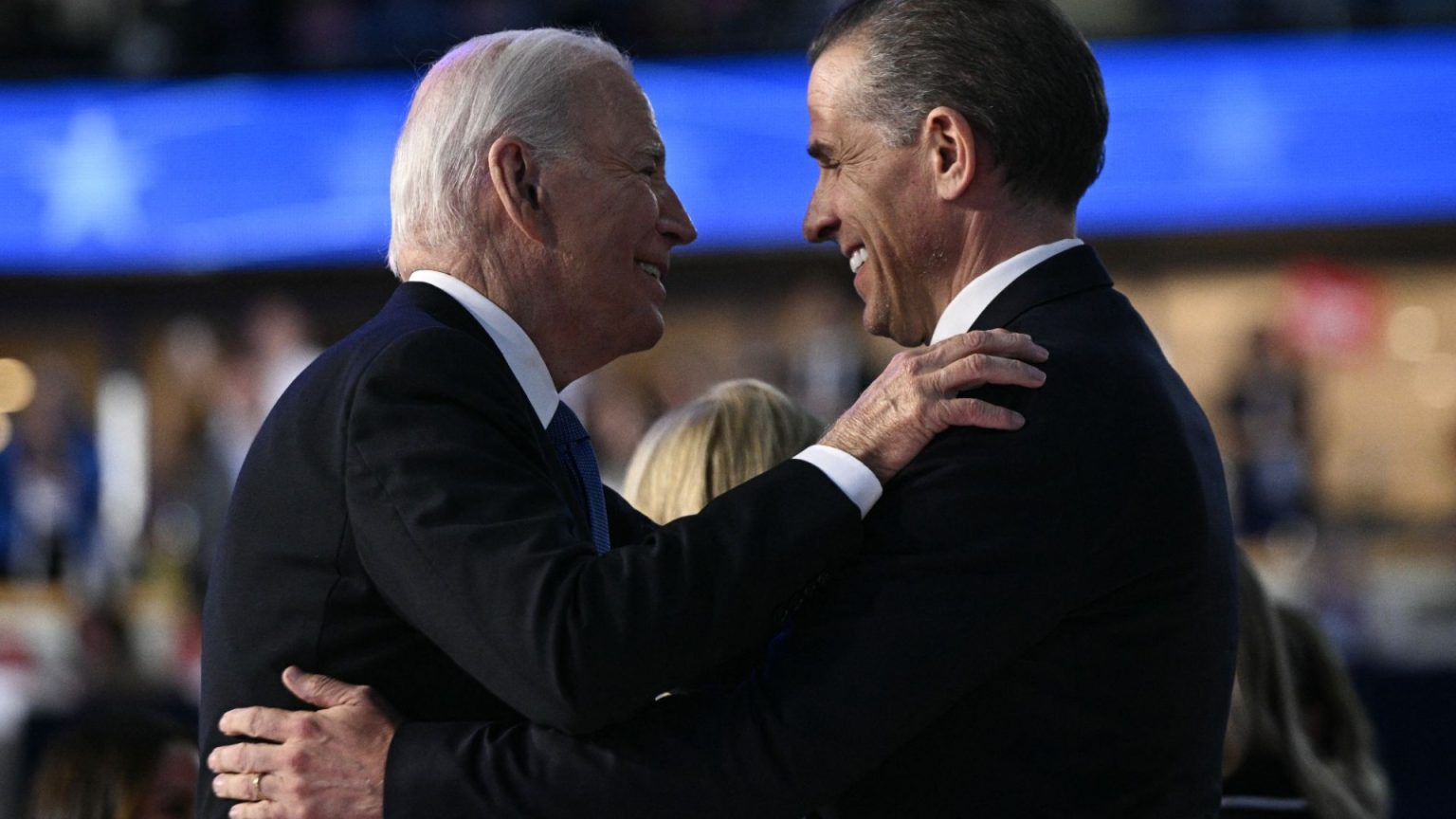Hunter Biden’s surprise guilty plea in September was allegedly part of a pre-arranged agreement with his father, Joe Biden, to secure a pardon months later. Sources close to the White House claim that the plea and subsequent pardon were planned well in advance, despite the President’s earlier promise to stay uninvolved in his son’s legal matters. Hunter was facing a possible prison sentence of 25 years for federal gun charges and tax evasion. In June, he faced a legal setback when a judge rejected a plea deal on federal gun charges. By September, Hunter surprised many by pleading guilty to tax evasion charges in what was described as an “open plea” where no sentencing deal was made with prosecutors. He was charged with failing to pay over $1.4 million in taxes between 2016 and 2019.
The “full and unconditional” pardon issued by President Biden applies to any other crimes that Hunter committed between 2014 and this year. The President defended his decision to pardon his son, claiming that the justice system treated him differently due to his family ties. However, critics accuse him of going back on his promise to avoid interfering in Hunter’s legal troubles. Hunter’s drug addiction and legal troubles have been well-documented in the media, and his pardon has raised questions about preferential treatment and justice in the legal system. The pardon came just days before Hunter was due to be sentenced in a different criminal case on December 16.
President Biden had previously stated that he would not pardon his son and would abide by legal decisions, but he has now used his powers to spare Hunter from a possible 25-year prison sentence. The decision has been criticized by some, including former President Donald Trump, who called it an “abuse and miscarriage of justice.” Hunter’s guilty verdict in June was delivered by a jury in Wilmington, Delaware after just three hours of deliberation. Prosecutors argued that he had knowingly lied about drug use on a firearm form when he bought a gun in 2018. The trial revealed details of Hunter’s turbulent life, including his struggles with addiction and the death of his brother Beau Biden in 2015.
Hunter’s legal troubles began in 2018 when he purchased a gun and allegedly lied on the ATF form about drug use. He was indicted on three felony gun charges in September 2023 after a plea agreement with federal prosecutors unraveled. The charges against him included knowingly making false statements on firearms purchase forms and illegally possessing a gun while abusing drugs. Hunter faced up to 25 years in prison, but first-time offenders rarely receive the maximum penalty. The pardon by President Biden has raised questions about the fairness of the legal system and whether Hunter received preferential treatment due to his family connections.
The pardon of Hunter Biden by President Biden has sparked controversy and criticism, with some alleging that it represents a miscarriage of justice and an abuse of power. The decision to pardon his son, despite earlier promises not to do so, has raised questions about transparency and integrity in the legal system. Hunter’s legal troubles and struggles with addiction have been well-documented in the media, and the pardon has reignited debates about the influence of political connections on legal outcomes. The fallout from the pardon is likely to continue, with ongoing scrutiny of Hunter’s actions and the handling of his case by the authorities. President Biden’s decision to intervene in his son’s legal matters has brought further scrutiny to his administration and raises broader questions about ethics and accountability in governance.


